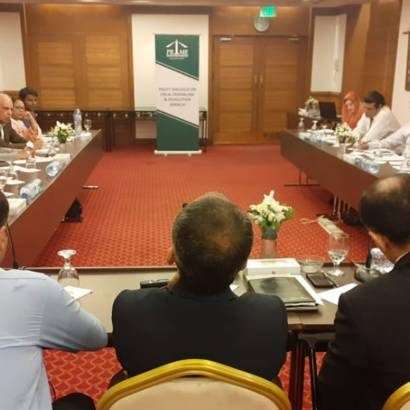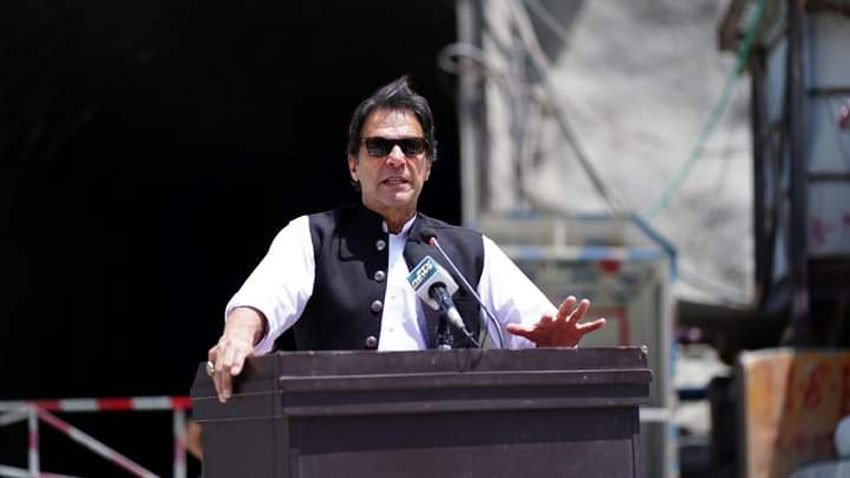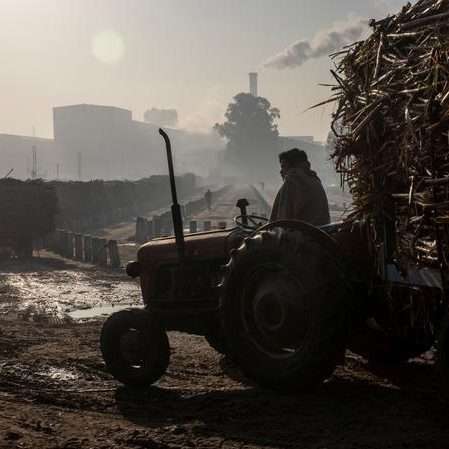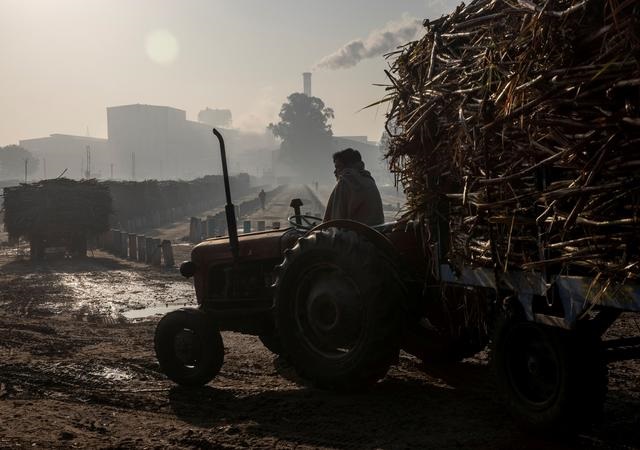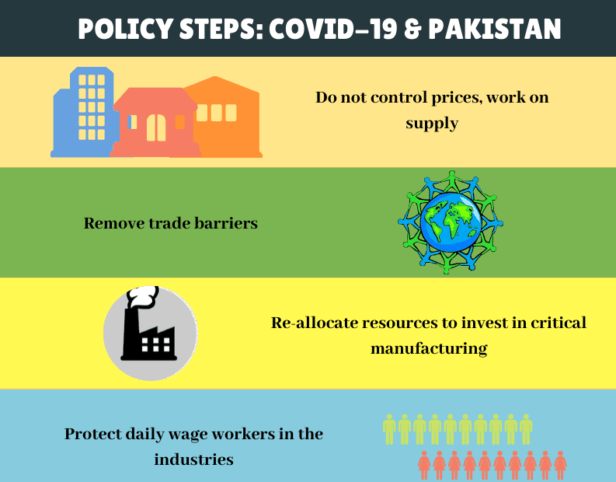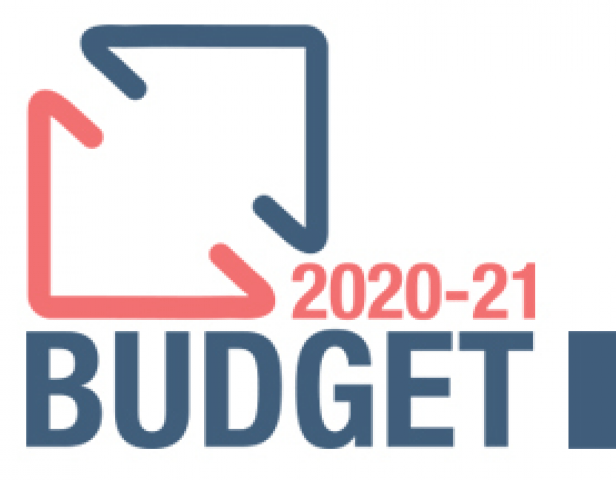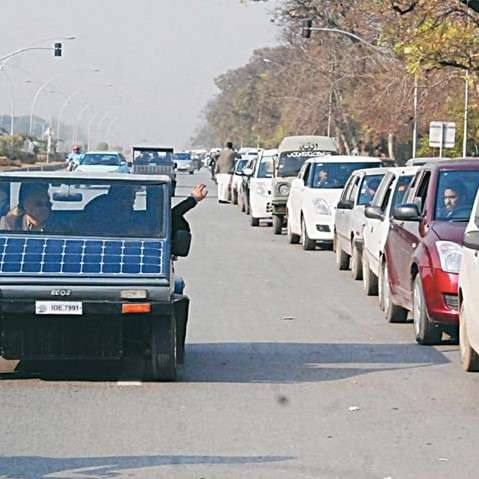
Policy Research Institute of Market Economy (PRIME) organized a policy dialogue on fiscal federalism and devolution, at Karachi Marriott Hotel. A select group of the informed audience was invited to participate in the discussion. Participants belonged to a diverse background of government, academia, business, media, and civil society. PRIME is conducting these dialogues in all four provincial capital cities in the country. These sessions serve to provide a platform to the concerned stakeholders across the country to provide their inputs to PRIME’s on-going research. For the purpose, PRIME has engaged five economists for authoring policy papers on 5- different NFC related issues. And these authors are part of all these provincial level dialogues. Inter-governmental resource distribution is more of a political matter rather than a purely economic one. All decisions reached at the National Finance Commission have to be reached at by a consensus. Therefore, in order to come up with pragmatic recommendations, research authors from PRIME are holding consultative sessions across the country.
The Karachi session was moderated by Dr. Imtiaz Bhatti, Additional Secretary (Coordination) at Chief Secretary’s Secretariat, Government of Sindh; whereas the panelists briefed the audience on their respective NFC paper.

Dr. Ghulam Samad (Director, Centre for Environmental Economics and Climate Change, PIDE)
Pakistan does not have a framework for provincial government expenditures. The federal authorities are collecting almost 98 percent of the total revenue and the provincial governments’ total expenditures are more than that of the federal expenditures. While the provincial governments’ expenditures are increasing, the same trend cannot be observed in the provinces’ contribution to revenue growth. The panelist posed the following questions before the forum:
1. Is there a need for expenditure framework for the provinces?
2. Should it really be a mandate of the NFC to discuss transparency and accountability?
3. What kind of incentives should be given to the provincial governments to encourage them to increase their own revenues? 4. Do the provinces need a fiscal responsibility law?
Dr. Naimat U. Khan (Assistant Professor, Institute of Management Sciences, University of Peshawar)
The panelist sought the forum’s opinion on the suggestion that the two territories of Gilgit-Baltistan and Azad Jammu & Kashmir should be treated like other provinces, so that a permanent percentage of divisible pool can be allocated for the two. This way they will not be each year dependent upon the federal government’s share of resources.
In case of Balochistan there is a protection with respect to the minimum percentage of share in divisible pool. Dr. Naimat posed the question whether there can be any such protection for GB/AJK or not? Can the federation assign a fixed percentage of non-tax resources for GB/AJK?
Dr. Sajid Amin (Head, Policy Solutions Lab, SDPI)
Granting such a high weightage to population as a resource distribution criteria needs to be revaluated. When population has a weightage of 82 percent in the horizontal distribution formula, other important indicators get left with very insignificant weightage.Provinces that have a high population naturally are in need of greater resources to be able to meet their needs. When population has such a high weightage in the resource distribution formula, this creates an incentive for the provinces for not keeping a lid on their population growth rates.
Poverty is given a weightage of 10 percent. It is proposed that this indicator should be substituted with poverty distance. Furthermore, the value obtained for poverty distance shall then be multiplied with the population in the province as this figure will be more representative of the actual needs of the province, with respect to poverty alleviation. The major resistance in the current NFC negotiations is coming from the province of Sindh. The question is what will be the level of willingness of the government of Sindh in undertaking population control initiatives?
Shahid Mehmood (Economic Policy Consultant; Instructor, Pakistan Institute of Trade & Development)
Under article 160 of the constitution of Pakistan, the provinces have ownership of their natural resources. However, it is seen that the federal government exercises far more control over them as against the provincial governments. For example, it is the federal government which bi-annually determines the wellhead pricing. Granting the right of collection of revenue (that is eventually transferred to provinces in the form of straight transfers) to provincial governments is currently disadvantageous for the federal government, which faces a budgetary shortfall of Rs.2 trillion.
Unfortunately, the districts from which natural resources are being extracted, their human development indicators are faring too bad as compared to other settled districts in the country. Neither the provincial nor the federal government spares a thought about the uplift of these areas.
Sohaib Jamali (Editor, BR Research)
Sindh has been without a Provincial Finance Commission for the last so many years. As per Sindh Local Government laws, property taxes, taxes on transfer of immovable property, tax on professions, trades and 4 callings, lie in the domain of local government. But realistically speaking it is still being levied and collected by the provincial government. From the perspective of PFC, development spending is still top-down instead of being the other way round.
There are thirteen/fourteen members of the PFC in Sindh of which 6 out rightly belong to the provincial government. Two are from the private sector, nominated by the provincial government. This is to say that if the district governments/local government are not fairly represented on the PFC, how fair would an award really be?

